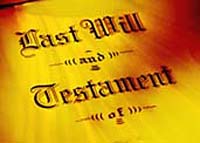 Frankly, there is less room for error when a single parent is managing all of the responsibilities of raising a family. Five key planning guidelines are the focus of the Parent Herald's article "5 Financial Planning Tips For Single Parents For Your Family's Protection."
Frankly, there is less room for error when a single parent is managing all of the responsibilities of raising a family. Five key planning guidelines are the focus of the Parent Herald's article "5 Financial Planning Tips For Single Parents For Your Family's Protection."
Here are the top five most important tips:
- Create a safety net. Most important is to have sufficient emergency funds that can be your financial safety net. Single parents should save at least six months' worth of expenses in an account that's untouched until an emergency occurs.
 Houston Estate Planning and Elder Law Attorney Blog
Houston Estate Planning and Elder Law Attorney Blog










